▼ CBDT signs APA with Indian taxpayers [05-25-17]
 The Central Board of Direct Taxes (CBDT) on 22 May 2017 signed two Unilateral Advance Pricing Agreements (APA) with Indian taxpayers. The Central Board of Direct Taxes (CBDT) on 22 May 2017 signed two Unilateral Advance Pricing Agreements (APA) with Indian taxpayers.
Among these two agreements, one also has a Rollback Provision.
The two APAs signed pertain to chip design and development of embedded software and Information technology sectors of the economy.
With the signing of these two APAs, the number of APAs signed in Financial Year 2017-18 is now four.
The progress of the APA Scheme is directly proportional to the Union Government’s commitment to foster a non-adversarial tax regime.
The APA Scheme was introduced in the Income-tax Act, 1961 in 2012 and the Rollback Provisions were introduced in 2014.
The scheme aims to provide certainty to taxpayers in the domain of transfer pricing by specifying the methods of pricing and setting the prices of international transactions in advance for the maximum of five future years.
Further, the taxpayer has the option to roll-back the APA for four preceding years, as a result of which, total nine years of tax certainty is provided.
Since its inception, the APA scheme has showcased a lot of interest from taxpayers that has resulted in filing of over 700 applications in about five years.
|
▼ HDFC Life announces AI app Spok [05-25-17]
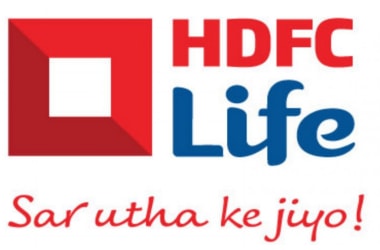 HDFC Life today announced the launch of an artificial intelligence-based application that can automatically read, understand, categorise, prioritise and respond to customer emails sent to the private insurer. HDFC Life today announced the launch of an artificial intelligence-based application that can automatically read, understand, categorise, prioritise and respond to customer emails sent to the private insurer.
SPOK, an insurance email bot, can read customer queries within milliseconds and respond to them, it said.
This automation initiative will enable the company to respond to user queries faster, more efficiently and consistently.
The deployment of SPOK will improve customer experience, while providing the support staff with the bandwidth to focus on customer satisfaction.
HDFC Life has embarked on this initiative in collaboration with Senseforth, a startup that offers a wide range of enterprise bots built on its artificial intelligence (AI) platform.
The email Bot is built on cutting-edge Artificial Intelligence and Natural Language Processing technologies.
|
▼ Israel Aerospace Industries closes deal with India [05-25-17]
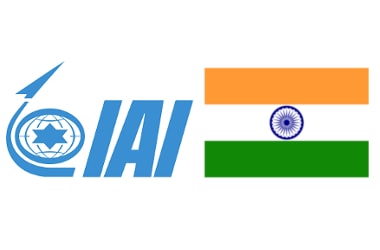 State-owned Israel Aerospace Industries (IAI) on 21st May has closed another major deal worth $630 million with India to supply advanced long range air and missile defence systems for four ships of the Indian Navy. State-owned Israel Aerospace Industries (IAI) on 21st May has closed another major deal worth $630 million with India to supply advanced long range air and missile defence systems for four ships of the Indian Navy.
The deal, a major boost to the ‘Make in India’ campaign, will be jointly executed with the Indian government’s Bharat Electronics Limited (BEL), and comes close on the heels of Israel’s largest defence contract ever worth $2 billion to supply the Indian Army and Navy with missile defence systems.
IAI said the $630-million contract is for supplying Long Range Surface to Air Missile (LRSAM) systems.
LRSAM: Know More
- The LRSAM is a joint development by IAI and India’s Defence Research and Development Organisation.
- It comprises several key state-of-the-art elements, advanced phased-array radar, command-and-control system, launchers and missiles with advanced radio-frequency (RF) seekers.
- The system provides the ultimate protection against a variety of aerial, naval and air borne threats. It is currently operational with the Indian Air Force, Indian Navy and Israel Defence Forces.
- The Indian Army is also likely to deploy it soon.
- The LRSAM was last week successfully tested in India as part of operational interception trial aboard Indian Navy ship demonstrating again the system’s operational capabilities in a representative scenario with genuine target.
|
▼ Karnataka Bank signs MoU with LIC [05-24-17]
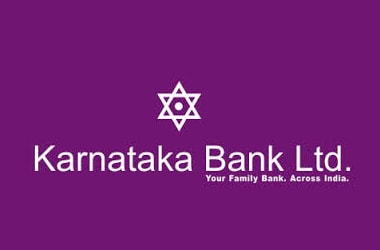 Karnataka Bank has entered into an MoU with LIC for selling life insurance products. Karnataka Bank has entered into an MoU with LIC for selling life insurance products.
The bank signed the corporate agency agreement with LIC in Mangaluru on 22 May.
The bank will be able to provide vast choice of life insurance products to its customers across all its 769 branches with this MoU.
LIC and Karnataka Bank are two great household names and both are time tested entities.
This tie-up will provide an opportunity to provide more effective life insurance solutions to the customers.
LIC will strive hard to create customized insurance solutions for the customers of Karnataka Bank, and is committed for reaching a new benchmark in claim settlement process, he said.
|
▼ BSNL inks agreements for promoting internet [05-22-17]
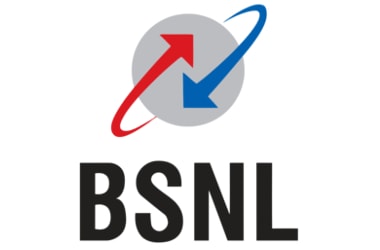 State-owned telecom operator BSNL has inked a clutch of agreements with Facebook and MobiKwik as its looks to popularise the internet and its value added services among customers. State-owned telecom operator BSNL has inked a clutch of agreements with Facebook and MobiKwik as its looks to popularise the internet and its value added services among customers.
The pacts were signed to commemorate the World Telecommunication and Information Society Day.
Under the Memorandum of Understanding (MoU) with Facebook, Bharat Sanchar Nigam Ltd (BSNL) will provide connectivity for the social network’s Rs.Express Wi-Fi Program’.
Facebook, through the Express Wi-Fi service, offers internet facility via public hotspots to users in rural parts of the country, in partnership with telecom operators.
Under another MoU, the company will work with digital payments firm Mobikwik to co-create a BSNL mobile wallet to facilitate payment for its products and services.
The wallet will be available exclusively to BSNL customers in India.
Additionally, MobiKwik will also enable “digital sale” of BSNL SIM cards through its app and website. A third MoU with Disney India will provide premium online gaming services to mobile customers of the telecom operator.
The state-run operator which is facing stiff competition from private telcos like Airtel and Reliance Jio, also launched a new solution in partnership with Data Infosys to offer bulk email services to government and private companies.
|
▼ Govt. unlocks port potential [05-16-17]
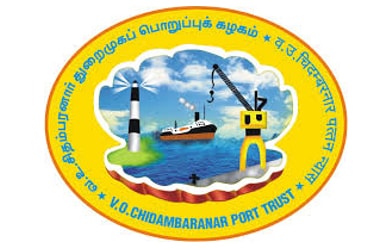 V.O. Chidambaranar Port is all set for a four-fold increase in the capacity of two of its Coal Jetties – Jetty I and II from 6.25 MTPA to 24 MTPA. V.O. Chidambaranar Port is all set for a four-fold increase in the capacity of two of its Coal Jetties – Jetty I and II from 6.25 MTPA to 24 MTPA.
The VOCP Trust signed a Memorandum of Understanding with Tamil Nadu Generation and Distribution Corporation Limited (TANGEDCO) for the upgradation of Coal Jetty I and II in New Delhi.
The project would benefit both TANGEDCO and the VOCPT.
It would make coal handling by the jetties much more voluminous and efficient, and thus bring down logistics costs.
This would also allow for cheaper production of electricity, which would be very beneficial for industrial growth.
With the upgradation of the coal jetties, TANGEDCO will be able to handle additional volume of coal cargo for the upcoming new power plants in Uppur and Kadaladi in Ramanathapuram district in Tamil Nadu.
In addition to this, there will be quicker turnaround of vehicles with the deployment of high tech handling equipments like two ship unloaders, each with a minimum 2000 TPH capacity and a high capacity conveyor system of 4000 TPH.
This enhancement of handling capacity and upgradation of infrastructure will result in reduction of logistics costs.
TANGEDCO will therefore be able to utilize the services of the Port in a more cost-effective way.
With the power generation from TANGEDCO’s Tuticorin plants being linked to the National Grid, this would enable availability of additional power at reduced costs, which, in turn, can fuel industrial growth and employment generation.
Port Upgradation: Know More
- The project is the outcome of Ministry of Shipping’s Project Unnati, under which a study, ‘Unlocking National Ports Potential’ was done to improve the handling capacity of CJ-I & II.
- The estimated cost for upgrading CJ-I & II is about Rs.800 Cr.
- As per the MoU, initially Coal Jetty-I will be upgraded in about 24 months by constructing a new Coal Jetty-I of 300m x25m along with repair of the existing CJ-I.
- CJ –II will be upgraded thereafter.
- The upgradation will give a competitive edge to VOC Port and will help it maintain its lead position in coal handling.
|
▼ Investor facilitation platform set up by DIPAM [05-12-17]
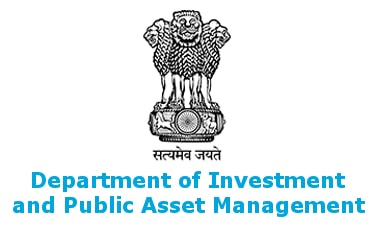 Finance Ministry has set up an Investor Facilitation Platform that will provide information about stocks of public sector units. Finance Ministry has set up an Investor Facilitation Platform that will provide information about stocks of public sector units.
Set up by the Department of Investment and Public Asset Management (DIPAM), the platform will be an interactive forum for all stakeholders, including investors, investment banks, law firms, public sector units and administrative ministries that are involved in stake sales.
Developed and maintained by PRIME Database, all users will have to register on the facilitation platform, which will then be authorised by DIPAM.
According to an official, different categories of users will get different kinds of information. But the overall objective is to make them more in touch with PSU disinvestment issues.
Investors will get features like price movements, shareholding patterns and financial results.
For other intermediaries likes investment banks and law firms, the facilitation platform is expected to give them closer access and better interaction with DIPAM to work on ongoing and upcoming stake sales.
DIPAM is also likely to soon launch a PSU information platform that would provide investors with details on listed PSUs including their daily prices, financial and annual results, corporate announcements and also details of the Board of Directors.
Investors should be aware about their investments. This will also bring more accountability in the functioning of PSUs.
The move comes at a time when DIPAM is expected to raise INR 72,500 crore from disinvestment proceeds this fiscal, including INR 46,500 crore from minority stake sales.
|
▼ 30 Share BSE sensex closes on record high [05-11-17]
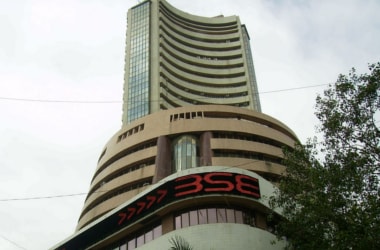 The 30-share BSE Sensex reached its record close of 30,248. The 30-share BSE Sensex reached its record close of 30,248.
The index has surpassed its previous record closing of 30,133.35 reached on April 26. It also surpassed its intra-day peak of 30,184.22 recorded on April 27 to hit a fresh intra-day high of 30,271.60.
The NSE index Nifty has breached the 9,400-mark for the first time. The NSE index registered a record high of 9,415, surpassing its previous milestone of 9,377 reached on May 5.
The indices have settled at their respective closing highs after the IMD’s new monsoon forecast has predicted that India is likely to receive higher monsoon rainfall as the concern over the El Nino weather condition has eased.
What is a Share Market Index?
- A share market Index shows how a specified portfolio of share prices is moving in order to give an indication of market trends.
- It is a basket of securities and the average price movement of the basket of securities indicates the index movement, whether upwards or downwards.
- BSE Sensex is such an index.
- The BSE SENSEX is a free-float market capitalization-weighted stock market index of 30 well-established and financially sound companies listed on Bombay Stock Exchange.
|
▼ Quikr acquires Zimmber [05-9-17]
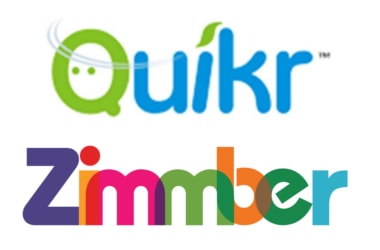 Online classifieds platform Quikr has purchased home services marketplace Zimmber for an undisclosed amount. Online classifieds platform Quikr has purchased home services marketplace Zimmber for an undisclosed amount.
The online platform looks to grow deeper into the home services space.
Zimmber is Quikr’s tenth acquisition and offers a marketplace for plumbers, electricians, carpenters and cleaning agents.
The company will continue to function independently of the parent company’s own services.
The acquisition allows us to further scale Quikr to deep stack service capabilities.
Zimmber had raised nearly $7.5 million from investors such as IDG Ventures and Omidyar Networks.
The company raised its last round of $5 million in July 2016 and is suspected of having run out of money, leading to a sale.
While co-founder Amit Kumar will make the move to Quikr along with founding member Siddhartha Srivastava who serves as the CPO, the rest of the founding team have exited the business.
Quikr had acquired real estate portal CommonFloor in a $200 million deal which it announced in January this year.
Quikr: Know More
- Founder: Pranay Chulet
- Founded: 2008
- CEO: Pranay Chulet (Jul 2009–)
- Location: India
- Headquarters: Bengaluru
- Major Subsidiaries: Commonfloor, Blitzkrieg Technology Private Limited
|
▼ RBI tightens JLF rules [05-8-17]
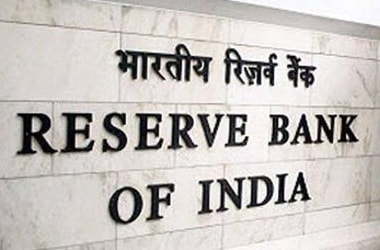 The Reserve Bank of India (RBI) has tightened the rules around making the Joint Lenders’ Forum (JLF) more effective. The Reserve Bank of India (RBI) has tightened the rules around making the Joint Lenders’ Forum (JLF) more effective.
It is directing banks not to break any rules and to meet all deadlines.
The RBI has said that any breach of rules would attract a monetary penalty.
JLFs are meetings held to revitalise stressed assets.
In JLF banks attempt to red-flag stress early and check them by putting in place a corrective action plan (CAP).
JLFs inefficiency basically stems out from the disagreements between lenders. The entire model of JLF is based on the premise that collective action of banks against a borrower for recovery.
However, in reality, different lenders have different levels of comfort or discomfort, based on the exposure, collateral, etc.
Many lenders have also complained about the lack of transparency in JLF.
As per the new norms, RBI has lowered the threshold needed for implementing the corrective action plan (CAP).
Now, the decisions agreed to by a minimum of 60% of creditors by value and 50% of creditors would now be valid to implement the CAP.
Once a decision is reached by the JLF, it would be binding on all other lenders and they must implement it without any additional conditionality.
However, if a lender wants to exit by exercising the substitution option but failed to exit within the given time, it has to go along with the decision taken.
RBI JLF rules : Know more
- RBI has asked all banks to ensure their representatives on the JLF to be armed with appropriate mandates.
- It has also asked the executives to take an unambiguous and unconditional stand and vote accordingly. As per the new norms, the executives after taking the decision should be suitably empowered to implement them without necessitating any board approvals.
- The CAP can include resolution through the flexible structuring of project loans, change in ownership under strategic debt restructuring or scheme of the sustainable structuring of stressed assets.
|
▼ India’s first private sector small arms manufacturing plant [05-8-17]
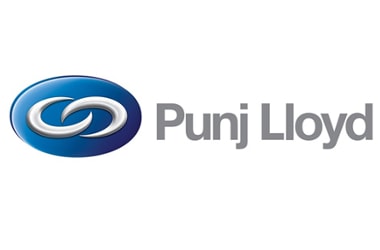 Punj Lloyd Ltd (through its wholly-owned subsidiary Punj Lloyd Industries Limited) and its JV partner Israel Weapon Industries (IWI) has inaugurated the country’s first private sector small arms manufacturing plant at Malanpur in Madhya Pradesh. Punj Lloyd Ltd (through its wholly-owned subsidiary Punj Lloyd Industries Limited) and its JV partner Israel Weapon Industries (IWI) has inaugurated the country’s first private sector small arms manufacturing plant at Malanpur in Madhya Pradesh.
The JV company, Punj Lloyd Raksha Systems Pvt Ltd, will manufacture small arms in the plant for the Indian defence forces and also for exports.
This is the first opportunity for the country to get its own ‘Made in India’ small arms.
The need of the hour is to replace the country’s defence weapons with sophisticated and high precision products and Punj Lloyd Raksha Systems is the answer to the country’s immediate need.
Known for executing infrastructure projects, Punj Lloyd diversified into defence sector by setting up a manufacturing unit at Malanpur with an estimated investment of INR 200 crore for fabrication and assembly facility for defence systems, primarily small arms.
For this, it had formed a JV with Israel Weapon Industries (IWI), a part of SK Group that manufactures innovative small arm systems.
IWI designs and develops technologically advanced systems for military, homeland security and commercial agencies worldwide. IWI product ranges are deployed in close collaboration with the Israel Defence Forces (IDF), seeking technological innovation, manufacturing excellence and outstanding performance.
Israel’s Ministry of Defence fully and wholeheartedly supports this cooperation and will continue to support the transfer of technology and information also in the future, for the betterment of improved advanced tools.
Israel and India consider their defence industry cooperation as a monumental step forward, towards a future of immense potential.
|
▼ India's forex reserves touch lifetime high [05-8-17]
 According to the Reserve Bank of India’s weekly statistical supplement, India’s foreign exchange, Forex reserves have increased by USD 1.594 billion to touch a lifetime high of USD 372.73 billion in the week that ended on April 28. According to the Reserve Bank of India’s weekly statistical supplement, India’s foreign exchange, Forex reserves have increased by USD 1.594 billion to touch a lifetime high of USD 372.73 billion in the week that ended on April 28.
The increase was due to increase in foreign currency assets (FCAs), The reserves had increased by USD 1.250 billion to USD 371.14 billion in the previous week.
The components of India’s Foreign Exchange Reserves include foreign currency assets (FCAs) Gold Special Drawing Rights (SDRs) RBI’s Reserve position with International Monetary Fund (IMF).
FCAs constitute the largest component of the Forex Reserves. FCA surged $1.569 billion to $349.055 billion in the reporting week. FCAs consist of US dollar and other major non-US global currencies.
It also comprises of investments in US Treasury bonds, bonds of other selected governments, deposits with foreign central and commercial banks.
FCAs include with them the effects of appreciation or depreciation of non-US currencies like the euro, pound, and the yen and is expressed in terms of dollars.
The gold reserves stand at USD 19.869 billion. SDRs’ value has increased USD 8.5 million to reach USD 1.460 billion. RBI’s reserve position with the IMF also increased by USD 15.8 million to reach USD 2.347 billion.
|
▼ LTTS acquires Esencia Technologies Inc [05-4-17]
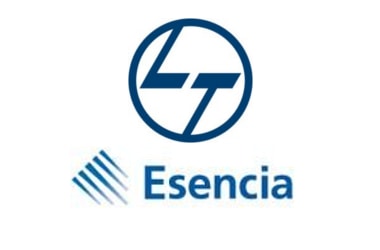 The board of L&T Technology Services (LTTS) has approved the acquisition of U.S.-based Esencia Technologies Inc, a provider of design services in digital signal processing for communications, video, security and networking. The board of L&T Technology Services (LTTS) has approved the acquisition of U.S.-based Esencia Technologies Inc, a provider of design services in digital signal processing for communications, video, security and networking.
A technology arm of engineering giant Larsen & Toubro, LTTS is also betting on big orders from multi-billion dollar global firms for double-digit growth in revenues in FY18.
This is above industry body Nasscom’s projections.
LTTL won a notable deal from a European OEM for design, development, implementation and standardisation of its digital engineering framework.
The company reported an 11.5% fall in net profits to INR 96.5 crore even as foreign exchange fluctuations weighed on profitability.
However, revenues rose 1.4% to INR 812.3 crore while in dollar terms the revenue grew by 3.4%.
Meanwhile, the acquisition will deepen LTTS’ offerings to global customers, in the realm of perceptual computing, Internet of Things, advanced silicon products and wireless networking technologies.
Esencia has a team of more than 100 embedded, ASIC design and semiconductor experts in Silicon Valley.
LTTS’ board also elevated A.M. Naik’s successor, S.N. Subramaniyan, at the EPC major parent to the position of vice-chairman from that of non-executive director.
LTTS: Know More
- Headquarters: India
- CEO: Keshab Panda (10 Jan 2015)
- Founded: 2012
- Parent organization: Larsen & Toubro
- Subsidiaries: L&T Thales Technology Services Private Limited
|
▼ Apple cash reserves outperform Google, Microsoft and Amazon [05-4-17]
 Apple has reported over $256 billion in cash and marketable securities. Apple has reported over $256 billion in cash and marketable securities.
In the previous year, Apple’s earnings report for the January-March quarter was $233 billion.
According to the rating agencies, the cash reserve possessed by the company is more than Google, Microsoft and Amazon’s total cash.
Compared to Apple’s $256 billion, Microsoft has $126 billion, Alphabet has $92 billion, Amazon has $22 billion and Facebook’s quarter one earnings stood at $29.45 billion.
The reported cash reserve is more than that of the big companies in the world like Verizon, Oracle, Walmart, and Visa among others.
Interestingly, Apple’s cash reserve is 70% more than that of India’s foreign exchange reserve.
As on April 28, India’s Foreign Exchange Reserves is equivalent to $371.13 billion
Apple has more cash than the foreign reserves of the United Kingdom and Canada combined.
However, Apple has reported a huge debt of $88 billion.
Experts hold that Apple might spend the cash to acquire entities like Tesla Motors, or Netflix or Walt Disney, and to other activities like paying off its debts, more R&D, advertising, constructing a plant in the US, compete with Amazon and Microsoft in cloud computing among others.
|
▼ MP adopts new financial year [05-3-17]
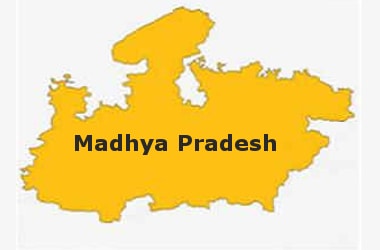 Madhya Pradesh has become the first state to adopt a January to December fiscal year. The decision was made in a cabinet meeting led by chief minister Shivraj Singh. Madhya Pradesh has become the first state to adopt a January to December fiscal year. The decision was made in a cabinet meeting led by chief minister Shivraj Singh.
Prime Minister Narendra Modi recently encouraged states to adopting this idea.
The meeting also decided that a picture of Pandit Deendayal Upadhyay will be issued with all the government letter heads, banners and advertisements.
Following a proposal from Modi, the Centre is in consultation with the states to have a January to December financial year, doing away with the old tradition of financial year starting on April 1 and ending on March 31.
The system was adopted around 150 years ago during British rule.
|
▼ Government to attain fiscal deficit target of 3.5 percent [05-2-17]
 GoI is confident of attaining the fiscal deficit target of 3.5 percent for 2016-2017. GoI is confident of attaining the fiscal deficit target of 3.5 percent for 2016-2017.
India's fiscal deficit at the end of February 2016-17 was Rs 6.05 lakh crore, which was 113.4 per cent of the full-year target, on account of lower realisation on non-tax revenues.
The fiscal deficit, which is a gap between government’s total receipts and expenditure, at the end of February was higher when compared with 107.4 per cent in the similar period of the previous fiscal.
Finance Minister Arun Jaitley in the Budget had set the fiscal deficit target at 3.5 per cent for FY 2016-17, after achieving the preceding year’s target of 3.9 per cent.
|
▼ Eight core industries of India grow by 5% [05-2-17]
 India’s eight core industries grew by 5 percent in March against a 1 percent growth rate in February. India’s eight core industries grew by 5 percent in March against a 1 percent growth rate in February.
The growth, fastest in three months, was led by higher coal and steel production.
However, growth rate of the core industries was lower than 9.3 percent, recorded in March last year.
As per the government data released, coal production increased by 10 percent in March as against 2.5 per cent a year ago.
Steel (alloy + non-alloy) production was up 11 percent while it had expanded by 7.8 per cent in March 2016.
Electricity generation was up by 5.9 per cent. Crude oil and natural gas production was 0.9 percent and 8.3 percent respectively, on annual basis.
On the other hand, cement production declined by 6.8 percent in March this and also fertiliser output (-0.8 percent). There was also decline in production of refinery products (- 0.3 percent).
The core industries, which contribute 38 per cent to the total industrial production, had expanded by 1 per cent in February and 3.4 per cent in March.
The expansion was recorded at 5.6 per cent in December.
On cumulative basis, the infrastructure industries grew by 4.5 per cent last financial year ended March 2017, higher than 4 per cent recorded in the previous fiscal.
IIP Index: Know More
- The Index of Industrial Production (IIP) is an index for India which details out the growth of various sectors in an economy such as mining, electricity and manufacturing.
- The all India IIP is a composite indicator that measures the short-term changes in the volume of production of a basket of industrial products during a given period with respect to that in a chosen base period.
- It is compiled and published monthly by the Central Statistical Organisation (CSO) six weeks after the reference month ends.
- The level of the Index of Industrial Production (IIP) is an abstract number, the magnitude of which represents the status of production in the industrial sector for a given period of time as compared to a reference period of time.
- The base year was at one time fixed at 1993–94 so that year was assigned an index level of 100.
- The current base year is 2004-05.
- The Eight Core Industries comprise nearly 38 % of the weight of items included in the Index of Industrial Production (IIP).
- These are Electricity , steel, refinery products, crude oil, coal, cement, natural gas and fertilisers.
|
▼ ARCs to have minimum NOF of 100 crores: RBI [05-2-17]
The apex bank of India, the Reserve Bank of India (RBI) has asked all the existing asset reconstruction companies (ARCs) to have a minimum net owned fund (NOF) of INR 100 crore by March 2019.
This decision has been taken by RBI in accordance with its last bi-monthly monetary policy in which it had proposed to stipulate a minimum NOF of INR 100 crore taking into consideration the enhanced role and greater cash based transactions carried out by ARCs.
As per amended SARFAESI Act, 2016, ARCs cannot carry on the business of securitisation or asset reconstruction without having NOF of not less than INR 2 crore or any other amount stipulated by the RBI.
As per the notification of RBI, the existing ARCs not meeting the minimum NOF criteria need to achieve the minimum NOF of INR 100 crore latest by 31 March 2019.
What is an ARC? - ARC is a company registered under Section 3 of the Securitisation and reconstruction of Financial Assets and Enforcement of Security Interest (SARFAESI) Act, 2002.
- ARCs are regulated by the RBI.
- They are the specialised agencies with a main role of resolving the stressed assets issue of the Indian banking system.
- They are involved in buying bad loans from Indian banks to turn them around.
- The Narsimham Committee –2 (1998) proposed establishment of ARCs on the similar lines with that of asset management companies present globally.
- ARCs help the banks to concentrate on normal banking operations rather than dealing with stressed assets.
|
▼ BSNL, DoPT sign agreement [05-2-17]
A tripartite Memorandum of Understanding has been signed between BBNL, Department of Posts and BSNL to provide broadband connectivity of BharatNet to Post Offices in rural areas.
BSNL would provide broadband services.
The infrastructure expenses and the operational expenses would be paid by the Department of Posts. BBNL would facilitate and coordinate the entire project.
BharatNet is Centre’s rural internet connectivity programme which is implemented by Bharat Broadband Network Limited (BBNL)and the world’s largest rural broadband connectivity programme using Optical fibre.
Bharat Net seeks to connect all of India’s households, particularly the rural areas, through demand, affordable broadband connectivity of 2 Mbps to 20 Mbps to realise the vision of Digital India.
The project is being funded by Universal service Obligation Fund (USOF) and is being implemented in 3 stages.
|
▼ Paytm sells Digital Gold [05-2-17]
Payments app Paytm on 27 April 2017 launched Digital Gold on its platform to allow customers to buy and sell gold through electronic platform.
This first wealth management product was launched in partnership with gold refiner MMTC-PAMP.
It offers a real-time international pricing mechanism for the customers.
Using Paytm mobile wallets, consumers can purchase 24K 999.9 purity gold online and store it in MMTC - PAMP’s secure vaults free of charge.
Customers can buy and sell gold either by money (starting Re 1) or by weight (starting 0.1 gram).
Customers can even request for their gold to be delivered at their homes in the form of minted coins.
Moreover, if the consumer wants to sell the gold, MMTC-PAMP will buy the gold back from them and the money will be transferred to the user’s bank account.
They can pay via multiple payment modes such as Paytm wallet, debit/credit cards, net banking and others.
Consumers transacting over INR 20000 through Paytm, need to provide KYC details to avail the benefit of the gold scheme.
India as Gold Consumer: Know More - India is the world’s largest consumer of gold.
- An estimated 24000 tonnes worth USD 900 billion of gold is stocked in homes and bank lockers in India, as per World Gold Council estimates.
- Gold is the preferred form of investment for Indians. Through Digital Gold product, Paytm intends to target lower-middle and middle class Indians.
- This product will make it easier for customers to invest in gold digitally.
|